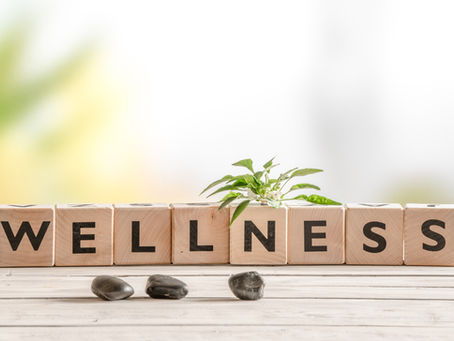Health Versus Wellness: What's the Difference?
- Jamie Arreola

- Feb 5, 2023
- 3 min read
Updated: Sep 4, 2025

Health and wellness are two entirely different concepts. I will explain why.
In my practice, and my personal life, and maybe you do too, know people with very advanced illnesses and disease, medically unhealthy, who are content, at peace, and living full lives with optimal wellness.They are well. These people have the remarkable capability of seeing the bright side, and maximizing their experiences even within the limits of their disease.
I also have known medically healthy people who are very unwell. They are miserable in their lives, and unhappy, discontented and can hardly tolerate everyday life experiences. They are unwell. Do you know people who are perfectly healthy, yet make everyday a hardship for themselves and others? They are healthy but unwell, in my opinion.
Health is simply defined as the state of being free of illness or injury. Health can be measured through standardized tests by physicians and therapists, and give indications about a person’s inner-body status. Health is the state of our body and mind on a sliding scale from ease to disease.
Wellness is defined as the act of practicing healthy habits to attain better physical, mental and spiritual outcomes. Wellness is what we actively do to improve our current state of being, regardless of our health status. I like to think of wellness as an action word. It encompasses the positive and mindful efforts we put into our mind, body and spirit.
So I ask, what is your current state of health? Do you know the answer? If not, get to your primary care physician for this year’s annual exam and lab tests. Who should get lab tests? In my opinion, everyone. They give you a baseline of what is going on in your body, and provide simple indicators of health risks and disease.
I can not prescribe or diagnose, but these are health tests I like to get myself and that I think are a good start for most. I request tests for blood sugar, cholesterol, liver and kidney function, inflammation, and infection. I like to track my full B vitamin panel (doctors won’t always test the Bs, but at least they do B12), vitamin D, ferritin, iron, and blood pressure. Heart attack and stroke risk screenings are prudent if you are at risk, or if they run in your family. If obese,or very thin, check your thyroid function. If struggling with mood dysregulation, early onset hair loss, or suffer an unusual menstrual cycle, get hormones tested. If you are struggling with emotional or mental challenges, ask to be screened for possible mental health disorders. Do not delay. Speak with your doctor and be proactive. A gentle reminder- your mind is part of your body, so mental health is an important part of your health.
Next, what is the state of your wellness? Your wellness is based on the things you do for self-care. How do you support yourself in life? These things can be observed by yourself and others, and they add to your resilience. Observable wellness indicators include activities and actions that promote a balance of joy, relaxation, fun, nutrition, hydration, meditation, exercise, family, friends, community, reflection, work, financial security, in a safe environment that includes mindful and/or spiritual practice. To check your overall wellness,slowly read through these eight terms, and whichever ones make you wince in pain or embarrassment, or you draw a blank, that is an area of development for you: Physical, emotional, financial, occupational, intellectual, environmental, spiritual, social. Which category gave you pangs when you thought about it? Everything does not need to be equal; however, everything counts.
When considering the eight categories of wellness, none are exempt. For example, even if you are retired, or your finances are secure, you still likely desire meaningful work. People have an innate drive to creatively impact the world. You may consider finding a hobby, gift, or talent to share with others to satisfy the “career” category. The intellectual category does not require formal schooling, but it invites us to be lifelong learners, and keep finding topics that intrigue us, that we can learn about to keep our minds satisfied and flexible. Each category should be developed as you can.
I hope I have described the difference between health and wellness. Now, the good news is, NBC-HWC coaches are highly trained to assist with maximizing both health and wellness. We teach about how food, movement and mindfulness can positively affect your life. We allow you to work through obstacles to improve your own effectiveness in health, wellness and life management. What needs attention? Get on it! It’s your life! Here’s to Health and Wellness.








Comments